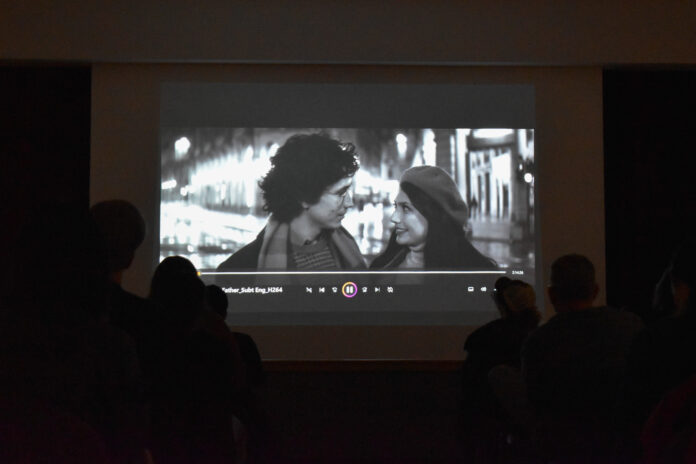
The 2024 Latin American Film Festival opened Tuesday, Jan. 30, with a showing of the Colombian film, “El Olvido que seremos (Memories of My Father.)” The film is the first in a series of five movies from various countries in Latin America presented to students and the broader community over the next few weeks.
Through these films, Professors Mirna Trauger Ph.D., Amelia Moreno and Liliana Lugo-Herrera, Ph.D., of the Spanish Department, who organized the festival, hope to illustrate the diversity of culture and experience that exists within Latin America, a region which they argue is often stigmatized and reduced to a monolith.
“My hope was to also support the many initiatives on campus that were working toward cultivating understanding, mutual respect and meaningful engagement with different perspectives and experiences, particularly those of historically underrepresented and marginalized groups,” reflected Trauger.
In a similar vein, Moreno highlighted the festival as an opportunity “to increase global awareness, a window to see social and political issues in different parts of Latin America… to see a little more of what is really happening in these countries, how life is there, why some people are risking everything to go to the United States” while others remain in their home countries.
The faculty also emphasized the importance of viewing films produced outside of Hollywood, focusing on the diversity of cinematographic techniques. Speaking about the films selected for the festival, Moreno added that “these films are powerful artistic expressions. Students are going to see innovation, creativity [and] expression, from other parts of the world.”
Muhlenberg’s Latin American Film Festival was born in 2013 and is now in its fourth iteration. Trauger developed the concept of the festival out of her deep appreciation for Latin American culture and a growing interest in cinema. She views the festival as an opportunity to expose students to different perspectives in community and through the entertaining medium of cinema.
When the festival first began, all five films were shown over the course of a week, each followed by a Q&A session. Now, the festival, which spans three weeks, has grown to include members of the community, student presentations, raffles, Kahoot games and guest speakers. The final film, “El Techo” will feature a virtual appearance by actor Enmanuel Galván.
To accompany the films, Trauger, Moreno and Lugo-Herrera partnered with Executive Chef Michael Brack to develop specialized menus representing the cuisines of each country from which a film is being shown. The special menus, which include foods outside of the Wood Dining Commons’ normal menu offerings, will be served on the same nights that the movies are shown.
In particular, this year’s festival focuses on the theme of “The Pursuit of Happiness: Family, Friends, and Community.” When asked why they selected this theme, the three professors responded unequivocally, “Why not?” Within a media cycle that chooses to focus on the negativity surrounding Latin America, taking the opportunity to celebrate the family, community and happiness within the region seemed like the logical choice. Once the faculty had chosen this theme, they worked to find films that fit within it, ultimately selecting films from Colombia, Mexico, Argentina, Costa Rica and Cuba.
Lugo-Herrera, who joined the project this fall, reflected that “Oftentimes to talk about Latin America becomes talking about trauma or so many painful topics that for once I was very happy to talk about joy and community and how great it is to have family… and that happens across the Americas as well as in migrant communities.”
The films do touch on difficult topics, including the difficulties of immigration, illness and human rights violations; however, the thread that ultimately ties all five films together is human connections. Moreno asserted that these films focus on positivity and hope within difficult situations because “that is who we are in Latin America. There are so many things that have been wrong, but we have humor.”
Julian Torres ‘25, who was a student presenter and panelist for the screening of “El Olvido que seremos (Memories of My Father.)” provided his insight on the festival saying, “I think it’s important to show that we are more than just our trauma. In Latin media there is definitely an element of pain and trauma, but there is also always a way to flip into something that can bring joy and togetherness. So we should focus on that more.”
As the faculty organizers reflected on the experience of hosting these film viewings, what stuck with them most was the joy of seeing students’ reactions to these powerful films and of getting to re-see the films through their eyes. “There is such an inherent joy in seeing your culture represented on the screen,” Torres added.
The Latin American Film Festival will continue with showings of “The Wolves” on Thursday, Jan. 30, “Truman” on Feb. 9, “The Return” on Feb. 12 and “On the Roof” on Feb. 15.





















